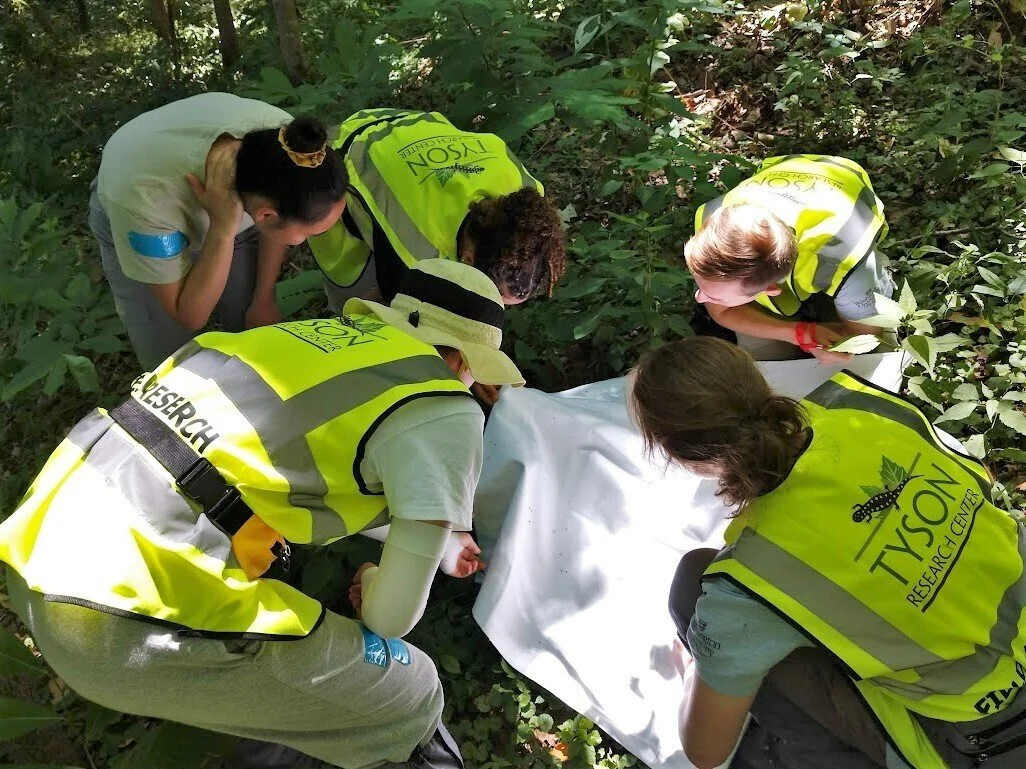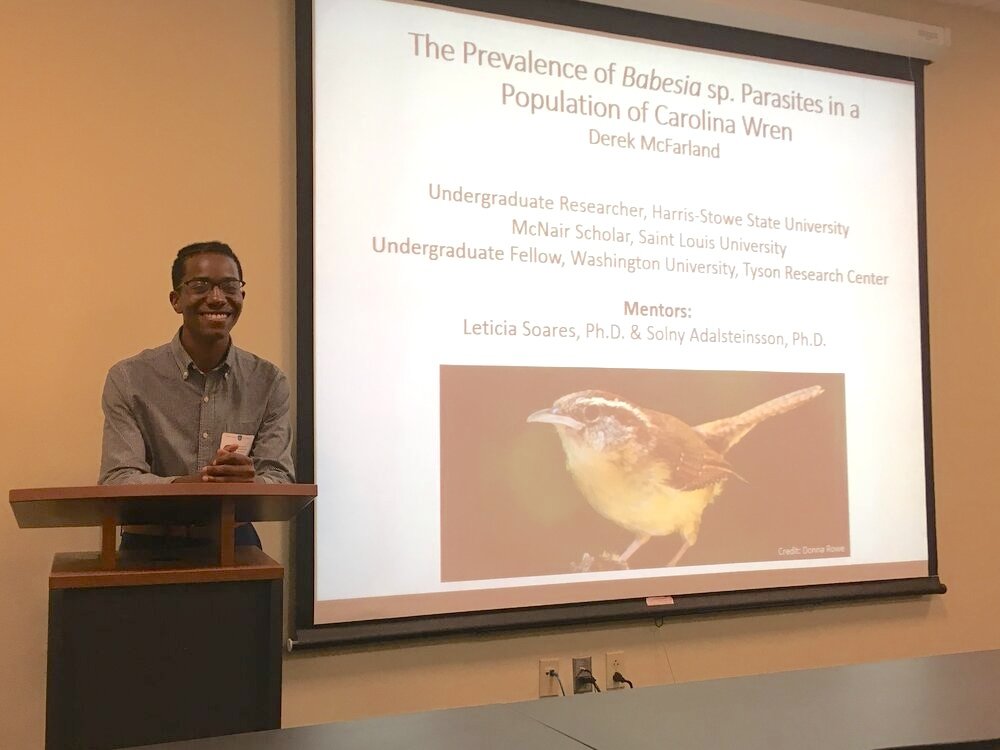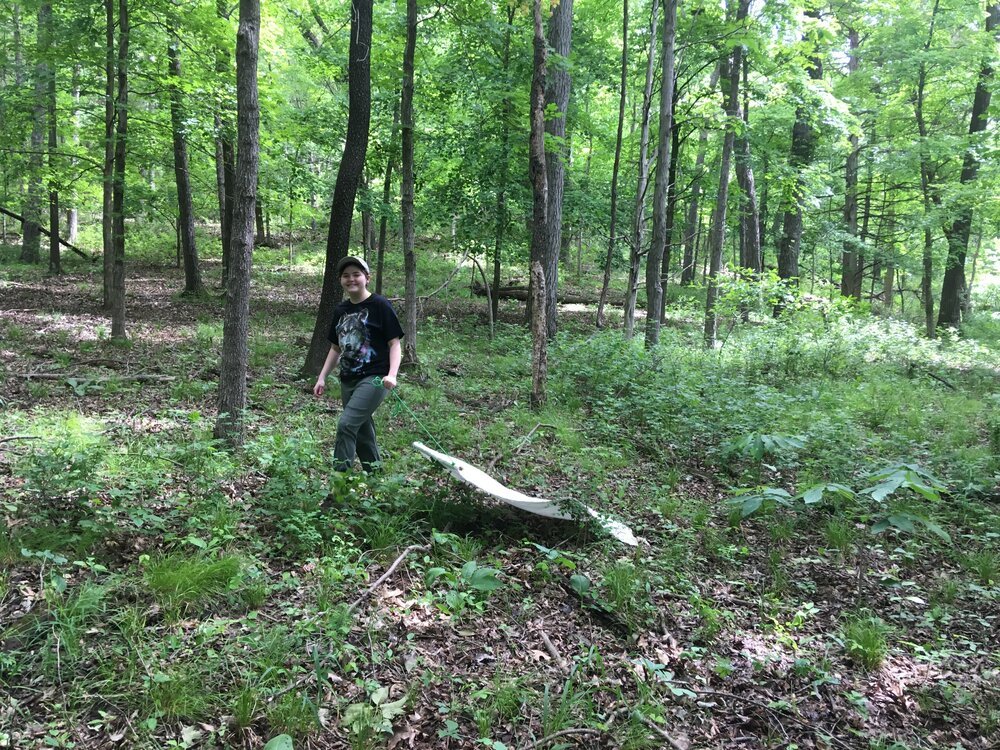research team mentor
Principal Investigator
Solny Adalsteinsson, PhD (Entomology and Wildlife Ecology)
Staff Scientist, Tyson Research Center
Email: solny.adalsteinsson@wustl.edu
Website: https://www.adalsteinssonlab.org
Research focus for summer 2025
We are a collaborative research group investigating strategies to reduce human and wildlife disease risk and conserve biodiversity. Our team focuses on applied research questions about how human-impacts on the environment affect the interactions among vectors, wildlife, and pathogens. We will have two core research areas during the summer 2025 fellowship season. Our work will mainly be focused on tick-borne disease ecology, but we will also contribute to ongoing wildlife conservation and monitoring projects.
Disease ecology research will be built around three main projects:
a large-scale field experiment at Tyson on the effects of prescribed fire on tick-borne disease ecology;
a pilot research project surveying the region for an invasive tick species and characterizing its local ecology; and
an urban tick project in the metro area investigating tick abundance and pathogen prevalence in relation to urbanization and wildlife host communities. We will be collecting data in the field and laboratory using similar methods for all three projects.
For the wildlife conservation focus, we work closely with Tyson scientists Beth Biro and Erin O’Connell, as well as Dr. Whitney Anthonysamy and her students at the University of Health Sciences and Pharmacy. Solny, Beth, and Whitney are co-PIs of the St. Louis Wildlife Project, and there are opportunities for students to contribute to urban wildlife research through this project.
Skills
techniques
methods
Our team members will gain experience with a diverse set of field and laboratory methods. In the field, you will learn to navigate with maps and compasses; to collect ticks with methods including dry ice trap baiting, flagging, and dragging; to collect a suite of weather and habitat data; and to use passive monitoring devices for surveying a range of wildlife species. In the lab, you will gain skills in microscopy and arthropod identification. You will also learn about best practices for data collection and management using Microsoft Excel and Google Spreadsheets. Depending on an individual's level of interest, you may also receive training in R programming language to run statistical analyses.
research conditions
Data collection for the disease ecology work is largely field-based, and conditions are often hot and humid. Research plots are mostly in forests on steep slopes with rocky terrain. We frequently encounter ticks, mosquitoes, and biting insects; occasionally we are lucky enough to see a timber rattlesnake! We provide field safety training and basic protective gear (gaiters, bug spray, etc.) to all team members.
The urban research work around the metro area involves visits to local parks and other public green spaces. These research conditions require our team members to handle ambient weather conditions (heat, humidity), but also to be prepared for interactions with the general public (often great outreach and science communication opportunities!).
We will also have many lab-based days as we work through identifying and sorting large collections of ticks. This work may be tedious and requires individuals to sit and focus on the same task(s) for long periods of time.
Team structure and opportunities for individual research
We encourage our team members to develop individual or collaborative research projects, and we make time to guide them through the process of experimental design, data collection, analysis, interpretation, and presentation of results. Undergraduate fellows will be mentored by two experienced research technicians as well as the PI. The entire lab group meets weekly to discuss projects and journal articles. Each fellow will present a poster at the Tyson Summer Research Symposium at the end of the field season.









